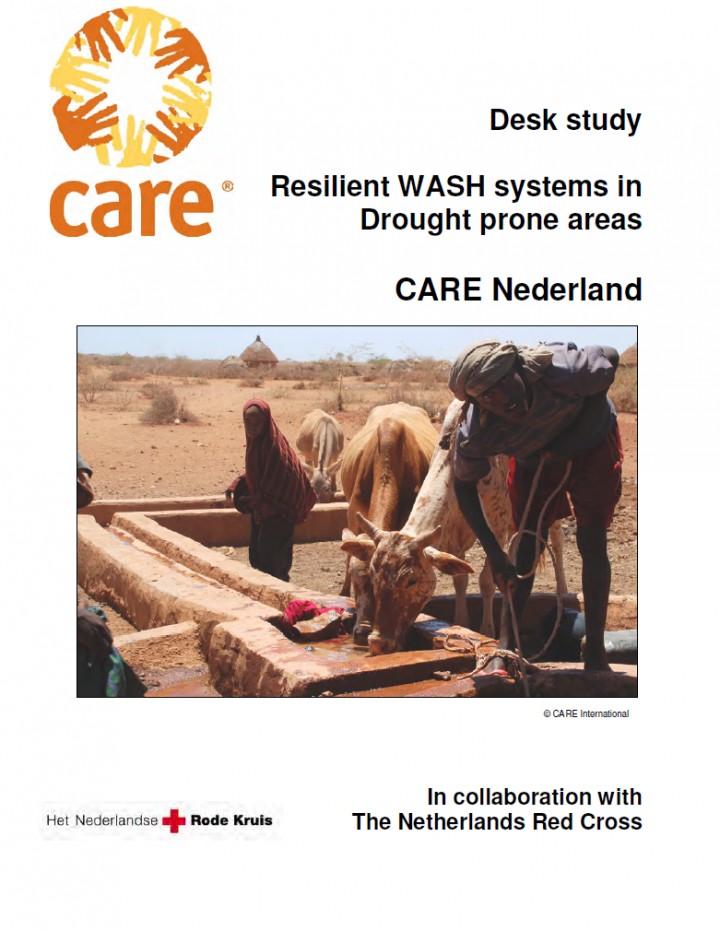Resilient WASH Systems in Drought Prone Areas CARE Nederland Fewster, E. (2010)
There are uncertainties with projected impacts of climate change, but reliability of projection depends on the area. For some regions projections of future precipitation change are more robust, while outside of these areas the predictions vary between models. Predictions also become less consistent between models as scale ecreases. One robust finding is that there will be changes in the seasonality of river flows in areas where much of the winter precipitation falls as snow. Projections also indicate that not everywhere will be affected by reduced cumulative water availability – in fact, some areas will start to receive more annual rainfall, while other areas will receive less. Even so, the variability is likely to increase, with more intense rainfall over short periods of time or longer periods with little or no rainfall, with the increased likelihood of extreme water-related events such as floods or droughts. The focus of this study is methods of increasing resilience of water systems in particular. The rationale for focusing on water is to do with its critical role in people’s ability to negotiate a drought – this seems to be particularly the case with access to water supply during drought emergencies. Some examples: After 1992 drought in Southern Africa, people became aware that drought was inextricably linked with management & conservation of surface and ground water sources –questions were asked then about how to make water supply systems more able to resist drought periods. Access to water was the main concern during drought of 2000 in Afghanistan, even above food supply.
Regarding water systems, the overall aim is to study what techniques can be used to improve water availability over space and time in areas not only prone to drought and changing climate variability, but also those areas with deteriorating water availability due to increasing water demands and human influences (see “Definitions of drought” section). Resilience is a concept used to describe how to make water systems more robust in terms of water availability, thereby reducing the vulnerability of people that rely on them. Both resilience and vulnerability are concepts related to the capacity to anticipate / cope with / resist / recover from a hazard, and both are determined by physical, environmental, social, economic, political, cultural and institutional factors.
Bibliographic information
Fewster, E. (2010). Resilient WASH Systems in Drought Prone Areas CARE Nederland CARE Nederland, Netherlands Red Cross
Filter / Tags
Politicians and local decision makersPractitionersGuidelines and manualsEnglish

